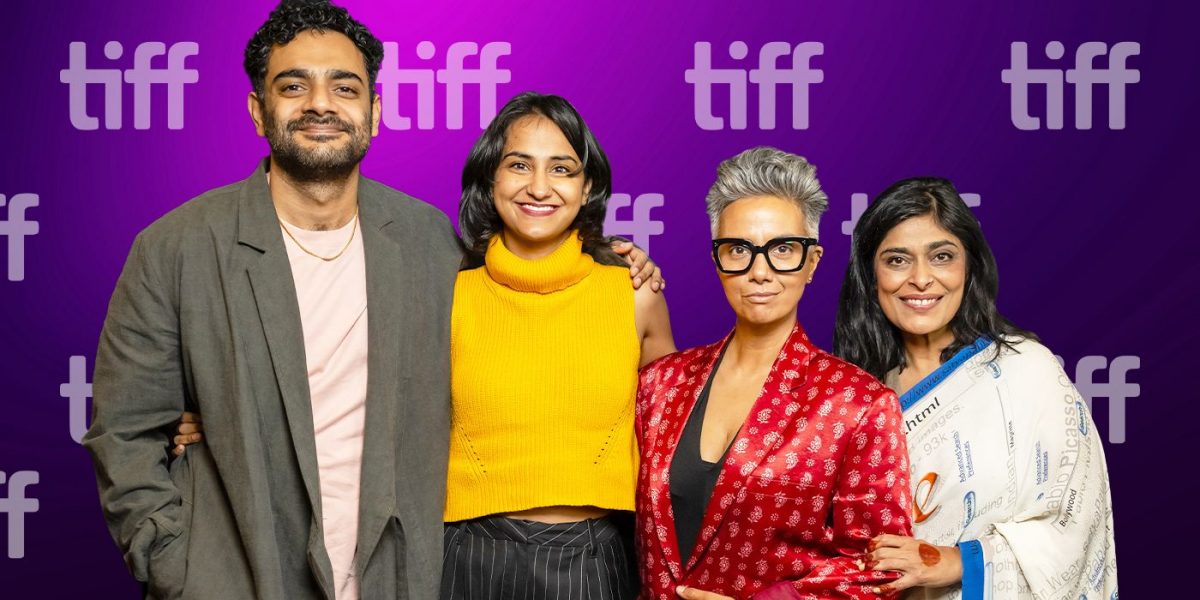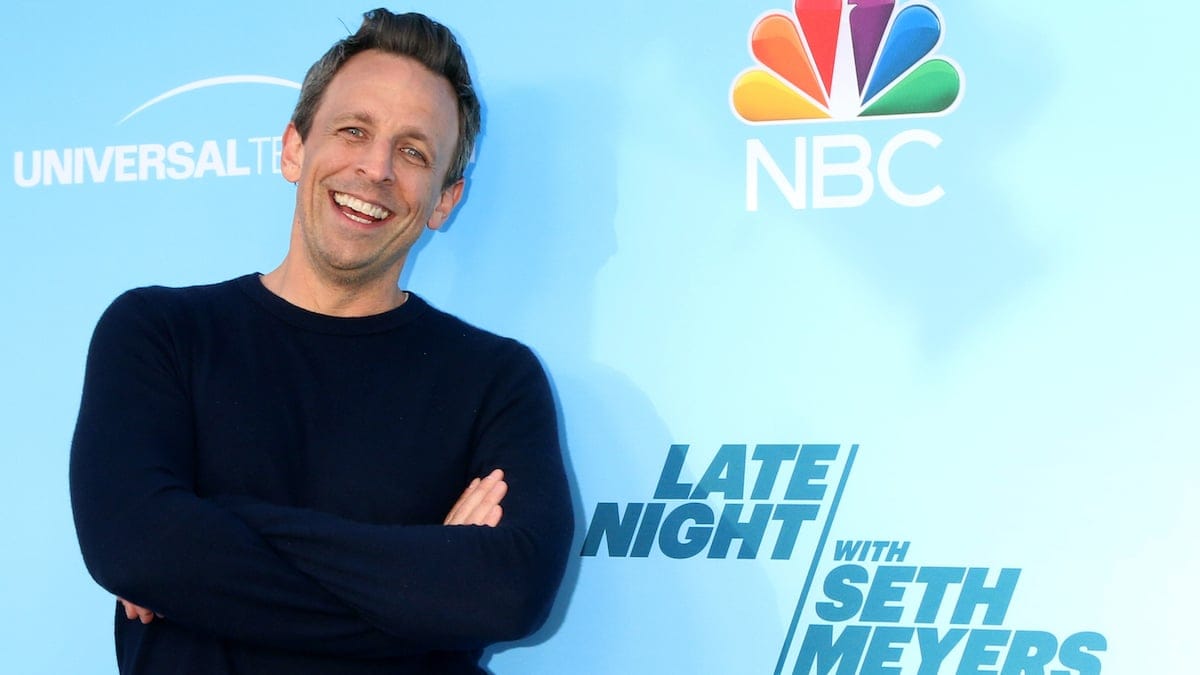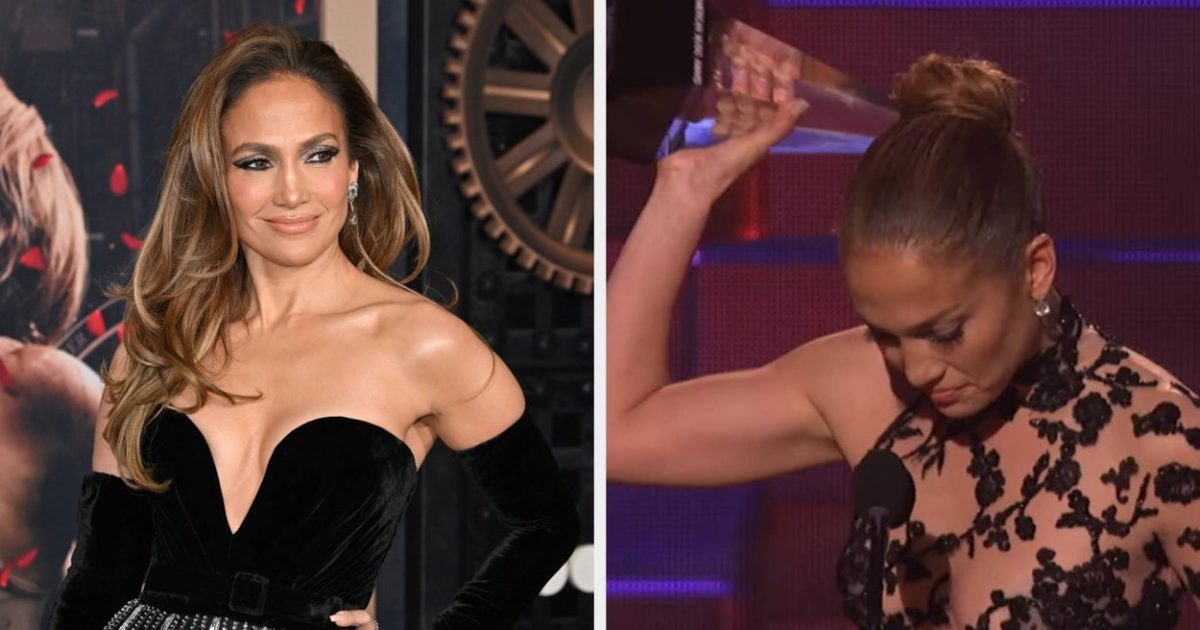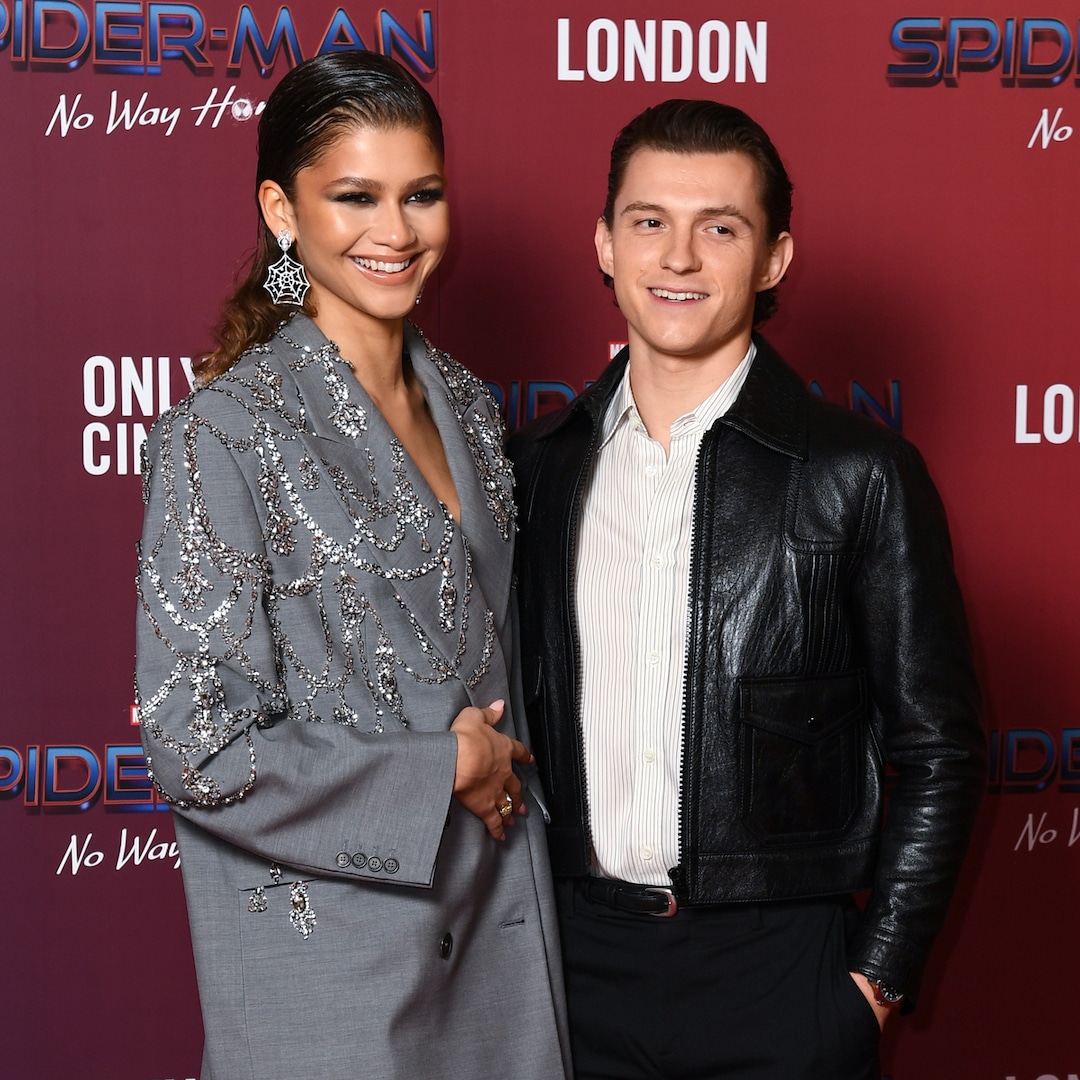
‘Queen of My Dreams’ Director Criticizes Idea That Women Are Risky Directors
Sep 14, 2023
The Big Picture
Fawzia Mirza makes her feature directorial debut with TIFF 2023 selection The Queen of My Dreams. The movie stars Amrit Kaur as a young woman who can’t see eye-to-eye with her conservative mother played by Nimra Bucha. While in Toronto, Mirza, Kaur, Bucha, and Hamza Haq discussed their experience making the film. They highlighted how Mirza excelled as a first-time feature director, how Kaur was a remarkable scene partner and leader in her first lead role in a feature film, and more.
One of the biggest highlights of a film festival? Finding a wildly talented first-time feature director with a unique vision and a firm understanding of how to execute it. One of those directors at TIFF 2023? The Queen of My Dreams director Fawzia Mirza.
Amrit Kaur leads the film as Azra, a 22-year-old living in Toronto with her girlfriend in 1999. When her father (Hamza Haq) suddenly passes, Azra must return to Pakistan to be with family, including her very conservative mother played by Nimra Bucha.
In celebration of The Queen of My Dreams’ world premiere at the festival, Mirza, Kaur, Haq, and Bucha all visited the Collider media studio at the Cinema Center at MARBL to discuss their experience making the film. Kaur, Haq, and Bucha highlight the qualities that made Mirza a standout first-time feature director, Haq, Bucha, and Mirza discuss how Kaur soared in her first lead role in a feature film, and all four pinpoint a movie that proved pivotal in putting them on the path they’re pursuing today.
Watch it all in the video at the top of this article or read the interview in transcript form below.
Image via LevelK, TIFF
PERRI NEMIROFF: Fawzia, this is your first feature as a director which is a very, very big deal. So you wake up one day, you say, “I want to direct my very first feature film.” A that time, what did you think was the first step to making that happen, to getting a film a green light, and now having done it, would you recommend that to an aspiring director out there or did you find something more effective along the way?
FAWZIA MIRZA: There’s so much sort of creative trauma in that. It’s like, “Who am I? What do I do? What is my path?” But I will say that it was three years ago when I was in the TIFF Writers’ Studio at the Bell Lightbox doing that program and I was surrounded by a bunch of other writer-directors with this screenplay, or a version of this screenplay, and I was still searching for a director, a queer Muslim brown director, and they were like, “I think it’s you,” and I made the decision there to direct this film and to claim that space for myself. And so it’s kind of cool to come back full circle and have the film be here.
I do think that I recommend maybe your first feature that you direct be in one country? Maybe! You know what I’m saying? I mean, it worked for us, but I have this incredible superhero of a cast and incredible producers and a team, but maybe one country, a few locations … [Laughs]
HAMZA HAQ: Exteriors, night.
MIRZA: [Laughs] Exterior, night, one place, one house. And also I was so lucky, my wife/producer [Andria Wilson Mirza] said, “Let’s get it funded in Canada.” So I was like, “How do you do that?” So that was the beginning as well.
Nimra, we were just talking about [Polite Society director] Nida [Manzoor] before. You seem to know what you’re looking for in a first-time feature filmmaker, so did Nida and Fawzia have any shared qualities that signaled to you, “Yes, they can direct a feature film,” and also, “They’ll be good collaborators for me as well?”
NIMRA BUCHA: Yes, absolutely. I think I got that sense from Fawz. I put my career/life in her hands for this. This was something that I hadn’t done for a while, so I didn’t really know. I don’t usually know what I’m doing, but there’s a little bit of a familiarity, and I think as soon as I had read the script and talked to Fawz, from the beginning it felt like we’d known each other for years and that she knew what she was doing. And whatever she was doing, I was in it! It’s been wonderful. It’s grown. Whatever that was has grown.
MIRZA: It’s grown. We’ve all grown.
Image via Photagonist at the at Collider TIFF Media Studio
I will continue to build on that! Amrit and Hamza, I have a very good feeling this is only the first of many directing efforts from Fawzia, so what is something about her that you are really excited for more actors to get to experience when they work together in the future?
AMRIT KAUR: Something amazing about Fawzi on set is that she knew how to command a space, where I find sometimes female directors are still trying to find a space and be recognized as leaders or the boss without being considered “bossy.” She had a beautiful way, in a completely different country, of getting everybody to listen to her without their egos coming up, and I think that’s very hard to do. She didn’t try to do that, she just was doing that, and that type of leadership, I think, is commendable for female directors right now.
I don’t mean to cut you off, Hamza, but I want to follow up on that. Fawzia, how do you do that? What is the secret sauce? What would you say to another female director out there who wants to be able to create that same kind of space and command on a film?
MIRZA: Well, I think that – and maybe it’s for all directors – there’s this idea that to be a leader, you have to treat people poorly, you have to be abusive to be taken seriously, and that’s just not right, and it’s not true. I think that the way that we can get people to be with us is through kindness and listening and compassion, and you can lead in a way that is not aggressive. I think that’s the future, and if that comes from some sort of feminine power, then hell yeah! But I do think that it’s a changing of how we think of the system and the set and what it means to be a director.
Hamza, I’m coming back your way with the original question now.
HAQ: Yeah, there was the audacity to have your first feature be such a personal story and just to go for it and to decide, “Alright, all of it’s gonna be on location in Halifax and on location in Karachi,” and to do that with as much – it wasn’t enthusiasm – I’m gonna put [Fawzia] on blast. Do you remember that day at the house where you got sick? For anybody who’s used to traveling to that part of the world, you get sick. It just happens. You’re gonna go there, you’re gonna get sick. I saw Fawzia direct lying down with blankets and pillows on set in the heat, all the runs – runny nose, runny X,Y, Z – and in between takes being like, “Yeah, no, that was pretty good but we can do again. We can do better than that.” And then you’d walk in and be like, “Hey Fawzia, how you doing?” She’d be like, “Great! Living the dream!”
KAUR: That’s incredible.
HAQ: It’s that mentality that I feel gets the job done. I’ve said this before, I got in trouble for saying it before, but a lot of young filmmakers don’t understand and don’t respect the amount of time that it takes to get good at something. There’s this entitlement to be just like, well, just because it took you 15/20 years doesn’t mean it should. And I’m just like, No! You can get an opportunity tomorrow, but to be ready for an opportunity to come up and to see Fawzia direct in Pakistan under those circumstances, that is the previous 10/15/20 years of work for that moment to be able to execute that. And I think a lot of people don’t know, like, “Well, I’ll learn on the job.” Yeah, you’ll learn and then you’ll get opportunities and you won’t be ready for those opportunities, and as a result, your product will reflect that. These people who give opportunities to first-time filmmakers and feature filmmakers, they’ll see that they shouldn’t be funding first-time filmmakers if they’re unprepared. So to see Fawzia so prepared to take that challenge is a boon to anybody trying to do that, but you have to follow the amount of work ethic, not what she’s getting out of it.
MIRZA: I think there’s something, off of that, the idea that women are risky as directors or there’s risk in a certain kind of person, whether it’s a queer person or a person of color or a woman or a trans person or a non-binary director, and truthfully, that’s just not true. Life experience can matter, maturity can matter, and sure, what you’ve done before matters. I think this idea of who should have those opportunities is also something that we need to re-evaluate and look at.
BUCHA: Also I think it’s that combination of humility plus knowing what you want, and I think that she knows very clearly what she wants. On set it feels like we’re all going to go and find out what we want together. So I think there’s that element, that sort of trick magician’s thing that she has as well, which I feel makes us all believe that we’re doing this, we came up with this. You know what you want, but there’s the humility. I saw it in the film last night. I saw it for the first time, and I don’t know why that word just kept coming back to me, that there’s a humility in the way that we’re seeing these people.
Image via LevelK, TIFF
Amrit, to build on this idea of using experience to deliver really good work, I believe this is your first lead role in a major feature film – a very, very ambitious project to do that with. Of all of the past #1s on the call sheet that you worked with, is there anyone you found yourself trying to emulate in terms of how you carried yourself on set as a leader and also how you tackled a significant role in a film?
KAUR: Oh my god, there are so many. I’m a part of this acting class that’s just phenomenal. [Hamza and I] go to the same acting class and so lucky to be working on this film with the same coach doing the work we love to do. There are two specific actors that I always think about, and they’re acting – Gabrielle Graham and Augustus Oicle. They’re fine actors and what I love about their work is they play for the reel, and that was my goal. I struggled a lot. I was scared going into the film because there were so many things that I wanted to be true that I hadn’t looked at enough in my life. So this was a call to action, looking at sexuality, looking at abuse, generational abuse, looking at my connection to my homeland. All these things I kind of looked at and I still haven’t fully looked at them, so if I was to do the film all over again, maybe today or six months down the line, I would go even further in the insecurities and the love of all those things.
Other than that, I’m a big fan of Adam Driver, Kate Winslet, Viola Davis, but also Amal Clooney and how she carries herself. So those four people constantly stay with me as well while I’m working.
Good names to drop!
MIRZA: Can I just add that the thing that I felt like I could do, or part of my job, was remind Amrit that who she is is in both of the characters. She already is Mariam and she already is Azra, and just to trust that.
I’m gonna make everyone sing your praises now because, again, this is your first lead role in a feature film and I think it’s going to be the first of many. Fawzia, for you first, can you tell me something about Amrit that you are excited for more directors out there to get to experience when they work with her as a lead in the future?
MIRZA: The thing that struck me when I met Amrit on a Zoom – we Zoom auditioned the first time and then we met in person – was this spark. When she is in, she is all in, and not just 100%, it’s like, add three zeroes to that, which I don’t even know. I’m terrible at math so I don’t know what that equals. But a lot! It’s a lot of percent! There’s no halfway. And so when you come in and you’re the one who’s like, “This is my project. I’m obsessed with this. I’ve been working on this for so many years,” you want people who are willing to go there with you and be there with you and hold your hand, and you’re like, “We’re diving in underwater for a while. We might not be able to breathe for a second [laughs], but you’re with me, right? You trust me?” And she trusts you, and I can’t wait for more people to experience that.
And now how about for you, Hamza and Nimra? What did you appreciate about Amrit as a scene partner?
HAQ: This woman here [laughs], like she said, we’ve been studying together for, what? Like six, seven years now? She’s absolutely ruthless when it comes to acting. It is the thing that she has dedicated her life to in a way that I haven’t seen anybody approach it. I love her dearly and I can’t stand her. All she talks about is acting, all the time. It is the only thing that is on her mind to the point that I feel like she’s not a real person, you know what I mean? [Laughs] She’s just this absolute ball of excitement and love for the art form. I feel like I give to it as well, but then I’m just like, “I just like to turn it off for a bit sometimes,” and you can’t do that around her. It’s just who she is, and I think that is such a blessing to any story, any director, any scene partner for somebody to be like, “No, we’re not done. We’re still doing this and we’re gonna go again and we’re gonna go again and we’re gonna go again regardless of what the emotional cost is because it’s worth it for the artistic process.” I see her dedicate herself to this character and to her craft, and there is no way it’s not a benefit to anybody who chooses to pay attention to that, as what she’s doing, like her approach to that. So, any filmmaker, any actor, anybody on that set will benefit from the lifetime and the filmography that Amrit Kaur is gonna be participating in for the next 20, 30, 40 years.
MIRZA: Inshallah, inshallah, inshallah!
I’m gonna clip that out and I’m gonna send it to you, and you send it to every project you want to work on!
KAUR: Hamza is my demo reel. [Laughs]
Image via LevelK, TIFF
What a beautiful answer. Nimra, do I dare ask you to follow that up?
BUCHA: I have to now try to, yeah. In our line of work, sometimes you show up and you want to do the work, but you think that the work is easy. You know how to do the work, you’re going to be able to get it done and nothing will make you hugely uncomfortable, but I think that with AmritI felt also that it was the relationship we were playing. We didn’t get a chance to rehearse together at all, but I felt that when we worked together there was a lot of stuff that she tried to stir up. She creates a lot of discomfort and the discomfort, you don’t realize how valuable that discomfort is because at the time that it’s happening, it’s uncomfortable. But I’m really grateful that you did that. It was amazing. Again, when I saw it and I knew — because sometimes you don’t know! I think you want to play for real, yes? And in my head, I know that, okay, real/acting, whatever, but I think you blurred it all up and made it all just really mixed up, and that was great. I loved it.
You mentioned that you two didn’t get to rehearse together. What about when it came to figuring out how you were essentially going to be playing the same character? It’s different parts of her life, but there has to be some sort of connective tissue to make her feel cohesive.
BUCHA: So I shot a lot of stuff before she did for the movie and I was playing with her younger self, Ayana Manji. I think you watched a lot of the stuff. I was very uncomfortable with that [laughs], especially because I didn’t get to see her stuff and then try to do her before. And then you told me that you watched some of my stuff on YouTube, which made me really upset. [Laughs]
MIRZA: Like Pakistani drama stuff?
BUCHA: Yes! I was like, “Why did you watch that? I didn’t want you to watch that!” [Laughs] Anyway, I think it’s instinct. It’s because we were both playing Mariam and we knew what that character was. [Fawzia] made sure that we knew what she was, so I think we both played Mariam our way, but there was a Mariam in both of us, so it worked.
I have so many questions. I’m not allowed to keep you here all day, but I really wanted to ask this one because a big part of the reason why I’m so obsessed with films, and all forms of storytelling, is because often I have an easier time processing my own truths via movies, and I love the way that you incorporate that idea in this film. For each of you, can you name a specific film that was very influential in terms of seeing yourself in it or maybe it coming into your life at just the right time?
HAQ: Yeah, absolutely. I’ll go with this one. I was 18 years old and I watched this movie called The Fall by Tarsem Singh. The level of storytelling in that movie, the amount of time it took him – I think he spent 19 years making the movie and I think it was something like 10 years shooting it over all these places. I didn’t know it at the time when I was watching it, but there’s this scene where they’re filming underwater and there’s a shot where they swoop under an elephant while five people are swimming around it because one of them couldn’t swim, and it’s the diversity of characters, it’s these locations, and at that moment I went, “I will do anything I can to be a part of the industry that makes something like that happen.” I didn’t have any technical skills. I’m like, “I don’t know how to write, I don’t know how to direct,” what do you do? I’m like, “I’m good at public speaking. Alright, acting it is!” And that was the shift where I didn’t exactly know, but I wanted to contribute to this art form and that was a huge thing as far as one particular moment in watching film that made that happen for me. And then, 15 years later, here we are.
True masterpiece right there. Great pick.
KAUR: I haven’t watched that one. I’ll have to watch it.
HAQ: It’s incredible.
KAUR: I will absolutely watch it.
HAQ: I watched it like four days ago again. It’s so good.
Image via Roadside Attractions
KAUR: For me it was a movie called Fire by Deepa Mehta. I had suspicions that I wanted to act, [but] I wasn’t sure. Even when I went into theater school, I wasn’t sure I actually wanted to act, but when I saw that film I was so blown away about the ballsiness to tell a queer story and the sexuality of two Indian women and the age difference, and the fact that Deep Mehta went over the hill to tell that story in spite of all the controversy and the backlash, the bullets. That’s a very hard thing to do. I saw that and I said, “I wanna be a part of the type of storytelling that changes the wiring of people and the way they think,” so then I decided to continue.
BUCHA: I’m sorry, this is such a hard question for me to answer, but I’ve just been thinking of The Big Lebowski, but I don’t know what that means! Whenever someone asks me, that’s the film because I’ve seen it so many times and I love it so much. I don’t know the reason that I love it, but I think it’s the stillness of that main character which I really love.
MIRZA: I feel like the film that I have to talk about, that was part of making this movie just as one of the touch points in some ways, was The Farewell by Lulu Wang. I didn’t watch it at Sundance, but I watched it at one of the awards screenings in Los Angeles by Sundance and afterward, I went up to Kim Yutani from Sundance who’s one of the head programmers and she was like, “How did you like it?” And I said, “That movie …” When you’re an Asian kid or a parent of immigrants, you all dream of telling your story that is somewhere in the world of The Farewell. That movie was deeply impactful to me.
Special thanks to MARBL Restaurant for hosting Collider as well as additional sponsors Sommsation, a top wine experience brand and online shop, and Molson Coors’ Blue Moon Belgian White as the beer of choice at the Cinema Center. Additionally, Moët Hennessy featuring Belvedere Vodka featured cocktails and Tres Generaciones Tequila.
Publisher: Source link
Jennifer Lopez Finally Understands Mi Gente Latino Meme
Jennifer Lopez Finally Understands Mi Gente Latino Meme Kicking off 2025, J.Lo is now promoting Unstoppable, a new biography drama in which she stars alongside Moonlight actor Jharrel Jerome. At the 2011 American Music Awards, Jennifer won Favorite Latin Artist…
Jan 11, 2025
Tom Holland's Dad Shares Insight Into Zendaya Engagement
Tom Holland became the greatest showman for his proposal to Zendaya. Just days after the Spider-Man actress turned heads at the 2025 Golden Globes with a 5-carat ring on that finger, Tom's dad... Disclaimer: This story is auto-aggregated by a…
Jan 11, 2025
Aubrey Plaza Issues Statement After Jeff Baena’s Death
The 40-year-old star and Jeff’s family issued a statement to People on Monday, where they called their loss an “unimaginable tragedy.”The Los Angeles County coroner’s office previously determined that Jeff died by suicide in his LA home. He was 47…
Jan 10, 2025
Jill Duggar’s Husband Clarifies Where He Stands With Jim Bob Duggar
Jessa Duggar (m. Ben Seewald)Jim Bob and Michelle's fifth child, Jessa Duggar, was born Nov. 4, 1992. Jessa met Ben through church and he began courting her in 2013—the old-fashioned approach to romance coming as a brand-new notion to a lot…
Jan 10, 2025











